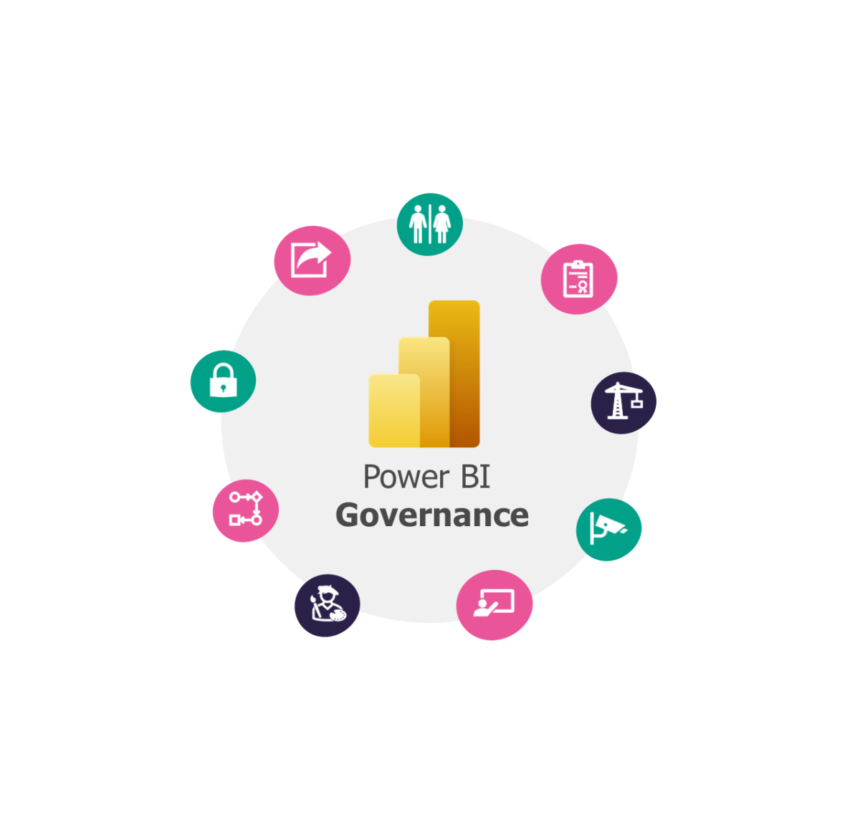In today’s data-driven world, businesses are increasingly relying on powerful tools like Microsoft Power BI to gain insights from their data. As organizations manage and analyze vast amounts of sensitive data, ensuring robust data governance and security in Power BI has become crucial. This article explores how businesses can implement effective data governance and security measures while using Power BI development services and Microsoft Power Apps consulting services to safeguard their data.
Why Data Governance and Security Matter in Power BI
Data governance and security are foundational to building trustworthy, reliable, and compliant data systems. Without these measures, businesses risk data breaches, loss of integrity, regulatory non-compliance, and diminished trust in their insights. Power BI, with its vast capabilities, offers a robust framework for both, but understanding how to implement them effectively is key.
- Data Governance focuses on the strategic management of data to ensure its quality, accuracy, and accessibility.
- Data Security ensures that sensitive data is protected from unauthorized access, breaches, or misuse.
These two elements work hand in hand to ensure that businesses can fully leverage Power BI while maintaining the integrity and security of their data.
Key Data Governance Best Practices in Power BI Development
When developing Power BI solutions, integrating strong data governance practices is critical for managing data effectively. Below are some best practices:
1. Define Data Ownership and Roles
In Power BI, establishing clear data ownership and roles is crucial. This involves assigning responsibilities for data management, ensuring that users know who is responsible for different data sets, and implementing proper access controls. In doing so, businesses can prevent unauthorized access and maintain data accuracy.
2. Implement Data Quality Management
Poor data quality can result in inaccurate insights, which may lead to poor decision-making. A structured data quality management system that includes data cleansing, validation, and monitoring is vital. Power BI development services often include tools to automate these processes, ensuring your data is clean and actionable.
3. Centralize Data Sources
When data is sourced from multiple locations, inconsistencies and security risks can arise. By centralizing your data sources in Power BI, you ensure consistency across the board. This also allows easier tracking and auditing of data.
4. Establish Data Access Policies
Limit access to sensitive data based on the user’s role and responsibilities. Power BI provides row-level security (RLS), which allows businesses to define security roles and filter data at a row level, ensuring that users only see the data relevant to them. This minimizes the risk of data exposure.
5. Monitor and Audit Data Usage
Regular monitoring and auditing of data usage are crucial in ensuring compliance with governance policies. Power BI provides built-in auditing capabilities that allow you to track who accessed what data and when. This helps in identifying potential risks and non-compliance issues before they become major problems.
Security Best Practices in Power BI
Incorporating strong security measures within Power BI is essential for protecting sensitive information. Here are key security strategies to adopt:
1. Use Multi-Factor Authentication (MFA)
Implementing multi-factor authentication (MFA) adds an extra layer of security by requiring users to verify their identity using more than one method. This significantly reduces the risk of unauthorized access.
2. Encrypt Data at Rest and in Transit
Data encryption is a vital security measure. Power BI supports encryption both at rest and in transit, ensuring that data remains protected, whether it is stored or being transferred between services. Implementing encryption prevents unauthorized users from deciphering the data if it is intercepted.
3. Control External Sharing
Sharing reports and dashboards outside your organization can pose a security risk. Power BI allows administrators to control external sharing through permissions and sharing policies, which ensures that sensitive data is not inadvertently shared with unauthorized parties.
4. Implement Role-Based Security (RLS)
As mentioned earlier, role-based security is essential for controlling data access within Power BI. By segmenting data access based on users’ roles, organizations can ensure that only authorized individuals can access sensitive information.
5. Regularly Update and Patch Power BI Systems
Staying up to date with the latest Power BI updates and patches is crucial for maintaining security. Updates often include critical security patches that address vulnerabilities, helping to keep your data safe.
The Role of Microsoft Power Apps in Enhancing Data Governance and Security
Microsoft Power Apps plays a crucial role in creating applications that integrate seamlessly with Power BI. These applications can help manage workflows, automate data governance tasks, and enhance overall security. Here’s how Microsoft Power Apps development services can bolster your data governance and security efforts:
1. Customized Security Protocols
Power Apps allows businesses to develop custom applications that integrate with Power BI, enhancing security protocols based on specific business needs. Custom security rules can be embedded in apps to control who accesses data and how it is used.
2. Workflow Automation for Data Governance
Power Apps can automate critical data governance tasks such as data validation, cleansing, and auditing. By streamlining these processes, businesses can ensure compliance with governance policies while reducing the risk of human error.
3. Integration with Microsoft’s Ecosystem
Power Apps, Power BI, and other Microsoft tools such as Azure and Dynamics 365 integrate seamlessly, providing a holistic approach to data management. This integration enhances both governance and security efforts by centralizing data controls across platforms.
Final Thoughts
As businesses continue to leverage the capabilities of Power BI, ensuring robust data governance and security must remain a priority. By implementing best practices and integrating tools like Microsoft Power Apps, companies can not only enhance their data management strategies but also build a more secure and trustworthy business intelligence framework.
Whether you’re utilizing Power BI development services or seeking Microsoft Power Apps consulting services, prioritizing data governance and security will empower your business to make informed decisions while safeguarding your data. Always aim to stay compliant with data regulations and keep your security measures up to date to mitigate risks in today’s dynamic digital landscape.



